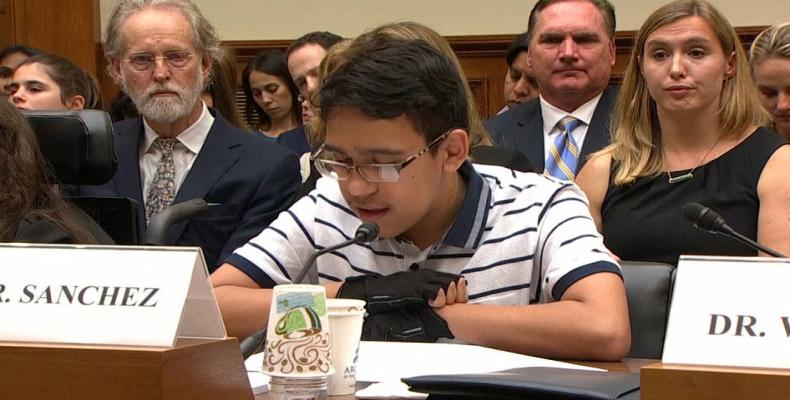Washington, September 12 (RHC)-- On Capitol Hill in Washington, DC, two young immigrants testified that the Donald Trump administration’s move to deport non-citizens with medical conditions is a virtual death sentence.
The pair told the House Oversight Committee they were abruptly ordered by U.S. Citizenship and Immigration Services this month to leave the U.S. within 33 days, even though they’ve lived in the U.S. for years under a program that defers deportations for immigrants who would otherwise not have access to life-saving treatment.
Massachusetts Democratic Representative Ayanna Pressley said: “The occupant of this White House and his xenophobic administration cannot reach any new lows. They go even lower, deciding to give seriously ill children and their families 33 days to leave the country or risk being deported.”
Also testifying before the U.S. Congress was 24-year-old Maria Isabel Bueso, who has a rare genetic disorder known as MPS. Bueso was brought to the U.S. from Guatemala 17 years ago -- at the age of seven -- to seek treatment. She told lawmakers that her participation in a clinical trial in California saved her life and led to the first and only treatment for the disease.
Meanwhile, 16-year-old Jonathan Sanchez, who has cystic fibrosis, testified that his life was saved at the age of 12 when his parents brought him from Honduras for treatment in Boston. The young Honduran said: “The day our lawyers told us that the medical deferred action program was canceled, I started crying and telling my mom, 'I don't want to die. I don’t want to die.’ If I go back to Honduras, I will die.”
The Trump administration’s medical deportation order this month came without any advance notice or public announcement. After it sparked a backlash from immigrant rights groups, medical professionals and Democratic lawmakers, officials partially backtracked and said they would “reopen previously pending cases for consideration.” However, it’s unclear what the longer-term fate of the program will be.


